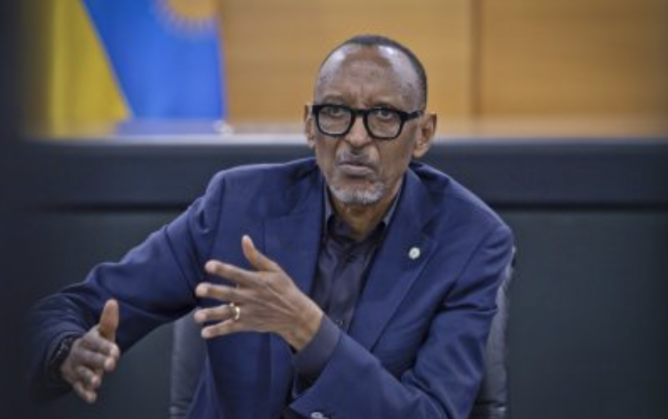Leadership in Africa – The Kagame Conundrum
By Femi Olugbile
The issue of political leadership in Africa has been a fraught one for a long time now.
When, in 2007, the Sudanese telecommunications entrepreneur and billionaire Mo Ibrahim introduced an annual prize of five million US dollars to be given to a former African leader who is perceived to have shown exemplary leadership in the running of their country, it seemed to be a recognition of the sad fact that leadership failure was at the heart of the problems bedeviling the Africa project. The celebration of past, and not current office holders also implied a certain concern about the tendency for African leaders to try to cling to power indefinitely.
In the fourteen years since the prize has been on offer, there has been no winner considered suitable for eight years in all. This is probably evidence of the rigour of the selection process and the dearth of really good leaders on the continent.
At inauguration in 2007, the prize was won by Joaquim Alberto Chissano of Mozambique, while Nelson Mandela was given an honorary award. In 2008 it was the turn of Festus Gontebanye Mogae of Botswana. The next award was in 2011 and it went to Pedro De Verona Rodrigues Pires of Cape Verde. In 2014 it was the turn of Hifikepunye Pohamba of Namibia. He was followed, in 2017, after a vacuum of two years, by Ellen Johnson Sirleaf of Liberia. The 2020 winner was Mahamadou Issoufou, retired President of Niger Republic.
In the past few years, the name of one man has been recurring whenever the discussion turns to leadership on the continent. He is not ‘retired’, yet, and so is not eligible for consideration for the Mo Ibrahim prize. His name is Paul Kagame, and he is President of Rwanda, a tiny nation with a tragic past.
Paul Kagame was born in 1957 to a family among the minority Tutsi ethnic group. He ultimately became the sixth President of his country.
Before he became President, he was a commander of the Rwandan Patriotic Front (RPF), a rebel force that was based for a long time in Uganda and played a large part in the country’s Civil War and the ending of the Rwandan genocide. After the end of the genocide and the defeat of the erstwhile government, Paul Kagame’s armed group became the de facto Armed Forces of Rwanda, and he became Vice President and Minister of Defence under President Pasteur Bizimungu. He served in this role from 1994 to 2000. He took over the Presidency in 2000 after Bizimungu resigned, or was forced from office.
In 2003, the same year in which a new Constitution was approved by referendum, he took part in his first presidential election, which he won with 95% of the vote.
The Constitution provided for a seven-year tenure for the President, with a maximum of two terms in office.
In 2010, Kagame, after what was generally recognized as an era of great strides in the development of the country, based on standard indices for measurement, including massive improvements in the Human Development Index and per capita GDP of Rwandans, and a huge leap in improvement of Ease of Doing Business, Kagame contested for a second presidential term. The main opposition candidate, Victoire Ingabire, a Hutu was arrested, and, along with two other opposition figures, prohibited from running for the election. Kagame, predictably, won the election with 93% of the vote.
And then in 2015, following a petition signed by 3.7 million people and delivered to parliament, a constitutional amendment was passed which reduced the presidential term to five years, retained the two-term limit, but made an exception for Kagame, who would be permitted, it said, to run for a third 7-year term, followed two further 5-year terms, if he so desired!
Kagame contested for the presidency again in 2017. Again, his most prominent opponent was banned from contesting. And, again, he won, with 98.8 percent of the vote.
Aside of his flawed democratic credentials, Kagame has been good for his country in a way perhaps no serving African leader can lay claim to. The irony of the whole drama surrounding him is that Kagame is actually quite popular among Rwandans, and it is likely, even probable, that without his strong-arm tactics, he would still have won all the elections he contested in anyway.
Rwanda’s economy has grown at an average of 7%. His policy, based on a Vision 2050, is to transform Rwanda to an upper middle-income country by 2035, and a high-income country like Singapore by 2050. He is seeking to change it from an agricultural to a knowledge-based economy and the ICT hub for Africa. He has laid a 2,300-kilometer fibre-optic network to facilitate broadband electronic commerce. With peace, rapid development of public utilities and positive marketing, Tourism became the leading foreign exchange earner for the country in 2011. There is Free Education in state schools for every child for twelve years. The country’s literacy rate, by 2009, was already 71%, up from 58% in 1991. In 2008, he made Health Insurance compulsory for his citizens. By 2010, over 90% of Rwandans were covered by Health Insurance. Under-5 mortality has plummeted. Malaria morbidity and mortality have been reduced. The country’s response to the COVID19 epidemic has been applauded worldwide.
Kagame cut a very statesman-like figure as head of the African Union from January 2018 to February 2019. He promoted the African Continental Free Trade Area (AfCTA) and pushed through reforms to improve the efficiency of the structures of the AU.
Is Paul Kagame the best-in-class African leader of his day, or a bully with a well-oiled public relations machinery? Should he be a model for the upcoming leaders, or a ‘no go area’ and a warning for others?
The controversy is hot, and is guaranteed to continue to rage for some time yet.

